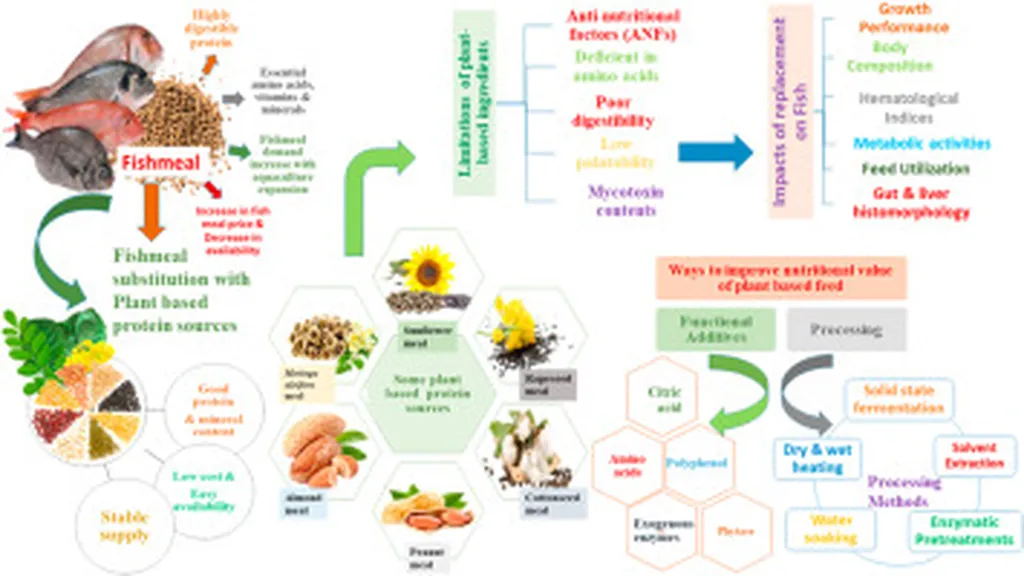In the quest to find sustainable and cost-effective alternatives to fishmeal in aquaculture feeds, researchers have made a significant stride. A recent study published in the journal ‘Aquaculture Reports’ (translated as ‘Aquaculture Reports’ in English) has revealed that rapeseed meal (RSM) can partially replace fishmeal (FM) in the diet of black carp (Mylopharyngodon piceus) without compromising growth performance and feed utilization. The lead author of the study, Weihua Gao, from the Hubei Key Laboratory of Waterlogging Disaster and Agricultural Use of Wetland at Yangtze University and Hubei Geshuo Biotechnology Co., Ltd, shared insights into the findings.
The study, conducted over 120 days, involved juvenile black carp with an initial body weight of approximately 5.5 grams. Six diets were formulated, each with varying levels of RSM substitution for FM, ranging from 0% to 50%. The results were promising, yet nuanced. “We found that up to 20% replacement of fishmeal with rapeseed meal did not significantly affect the growth performance, feed conversion ratio, or the digestibility of crude protein in black carp,” Gao explained. This finding is crucial for the aquaculture industry, which has been grappling with the rising costs and environmental concerns associated with fishmeal.
However, the study also highlighted potential pitfalls of excessive substitution. At replacement levels of 40% and 50%, the activity of certain enzymes and the content of triglycerides in the liver were significantly altered, indicating potential health issues. “Excessive dietary RSM promoted lipid synthesis and reduced lipolysis, leading to abnormal lipid deposition,” Gao noted. This could impair the health of the liver and overall well-being of the fish.
Moreover, the study found that high levels of RSM substitution reduced the activity of several immune-related enzymes and downregulated the expression of antioxidant and immune-related genes. This suggests that while RSM can be a viable alternative, its use must be carefully managed to avoid compromising the fish’s immune system.
The implications of this research are far-reaching. For the aquaculture industry, the findings provide a roadmap for sustainable feed formulation. “Our results suggest that rapeseed meal can replace up to 20% of fishmeal in the diet of black carp without adverse effects,” Gao stated. This could lead to significant cost savings and reduced environmental impact, as rapeseed meal is a more sustainable and readily available resource compared to fishmeal.
For the energy sector, the research opens up new avenues for collaboration. The aquaculture industry’s shift towards plant-based feeds could create new markets for agricultural by-products, fostering a more integrated and sustainable approach to food production. As the global demand for seafood continues to rise, innovative solutions like this could play a pivotal role in meeting that demand while minimizing environmental impact.
In conclusion, this study sheds light on the potential and limitations of using rapeseed meal as a fishmeal substitute in aquaculture. As Weihua Gao and his team continue to explore this area, their work could pave the way for more sustainable and efficient aquaculture practices, benefiting both the industry and the environment.

